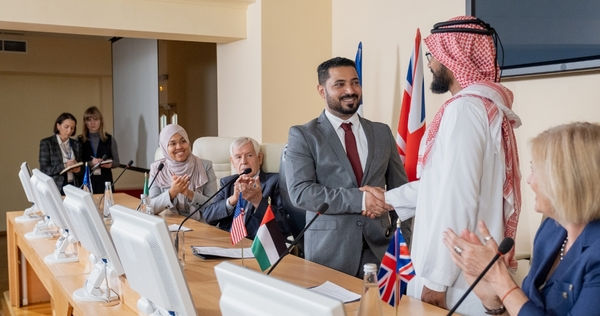Kavan Choksi on the UAE's Smart Cities Building a High-Tech Sustainable Future
- Kavan Choksi UAE
- Mar 18, 2025
- 3 min read
The United Arab Emirates (UAE) is undergoing a rapid transformation, harnessing cutting-edge technologies to build smart cities that prioritize efficiency, sustainability and connectivity. Through artificial intelligence (AI), the Internet of Things (IoT) and renewable energy initiatives, the UAE is reshaping urban living to meet the demands of the future. Kavan Choksi, a business and financial expert, highlights that these technological advancements not only enhance quality of life but also position the UAE as a global leader in sustainable innovation and economic growth.

The Role of Smart Technologies in Urban Development
The UAE’s commitment to smart city development is evident in projects that focus on energy efficiency, intelligent mobility, digital governance and infrastructure designed for long-term sustainability. These initiatives help address urban challenges while ensuring that the country remains a competitive and attractive destination for businesses and investors.
1. Smart Mobility and Transportation
The UAE has invested significantly in smart mobility solutions to enhance transportation efficiency and reduce environmental impact. Dubai’s Roads and Transport Authority (RTA) is at the forefront of integrating AI-driven traffic management systems, self-driving public transport and smart parking solutions. The expansion of the Dubai Metro and the introduction of electric buses and autonomous taxis are key components of this initiative.
By reducing traffic congestion and lowering carbon emissions, these advancements contribute to a more sustainable urban environment. Such investments also create economic opportunities by attracting tech-driven companies and fostering innovation in the transportation sector.
2. Renewable Energy and Smart Infrastructure
Sustainability is a core principle in the UAE’s urban planning. The country is home to some of the world’s largest renewable energy projects, such as the Mohammed bin Rashid Al Maktoum Solar Park. These projects significantly reduce reliance on fossil fuels and promote clean energy alternatives.
Smart grids, equipped with AI-driven energy management systems, optimize electricity distribution and consumption across cities. This ensures efficiency, minimizes energy waste and supports the transition toward a greener economy. Such initiatives reinforce the UAE’s commitment to becoming a carbon-neutral nation in the coming decades.
3. AI and IoT in City Management
Smart cities rely on data-driven decision-making to enhance urban planning and service delivery. IoT-enabled sensors and AI-powered analytics help monitor air quality, predict traffic patterns and optimize resource allocation. These technologies are integrated into various aspects of urban management, including water conservation, waste management and public safety.
For example, smart waste management systems use AI to optimize collection routes, reducing fuel consumption and operational costs. Similarly, water conservation efforts leverage IoT-enabled leak detection to prevent water wastage in a region where sustainability is a priority.
4. Digital Governance and Smart Public Services
The UAE has made significant progress in digitizing government services, making them more accessible and efficient. Residents and businesses can now complete various transactions online, including visa applications, business licensing and bill payments. This digital shift reduces bureaucracy, improves transparency and enhances the overall quality of governance.
Through AI-driven chatbots and automation, government agencies can provide faster responses and seamless service delivery. These improvements not only benefit citizens but also make the UAE a more attractive destination for international investors and entrepreneurs.
5. The Role of Smart Cities in Economic Growth
The integration of smart technologies into urban development plays a crucial role in strengthening the UAE’s economy. The establishment of tech-driven districts, such as Dubai’s District 2020 (formerly the Expo 2020 site), serves as a hub for innovation, entrepreneurship and international business collaboration.
Smart cities also attract foreign direct investment (FDI) by providing an advanced infrastructure that supports technology-driven industries. With a strong focus on AI, blockchain and automation, the UAE continues to position itself as a business-friendly destination that fosters digital transformation.
The Future of Smart Cities in the UAE
Looking ahead, the UAE’s smart city initiatives will continue to evolve, integrating emerging technologies such as blockchain, 5G and AI-driven urban planning. These innovations will further enhance efficiency, security and sustainability across various sectors.
As <a href="">Kavan Choksi</a> highlights, the UAE’s commitment to smart urban development is not just about leveraging technology—it is about creating an ecosystem that balances economic growth with environmental responsibility. The country’s efforts in digital transformation, renewable energy and sustainable urban planning set a global benchmark for future-ready cities.
By prioritizing innovation and sustainability, the UAE is shaping the cities of tomorrow, ensuring that smart, efficient and eco-conscious urban living becomes the standard for future generations.



Comments